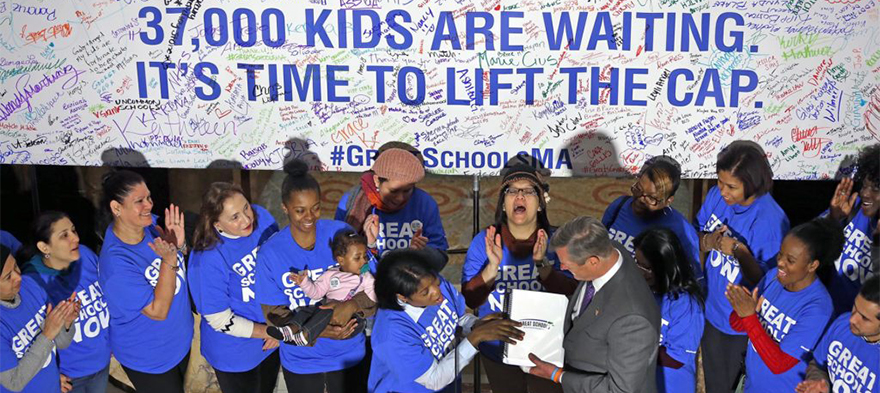
Nov 4, 2016 12:00:00 AM
If the answer turns out to be no, don’t point angry fingers at selfish Massachusetts voters. Blame falls equally upon a movement that has long been a bit too enamored of its own civil-rights-movement-of-our-time rhetoric to worry much about building a constituency among the middle class.Mr. Pondiscio’s market-driven solution to broadening that middle-class constituency is simple: Build charter schools for affluent families who want something even better than their well-resourced suburban schools and might otherwise enroll their kids in private schools or gifted magnets. I agree this approach might indeed appeal to the purely self-interested and engender political support from a population that is widely misinformed about charter schools. But seriously gunning for suburban schools, even the ones that are far more mediocre than they should be, also will open up a new front in the charter school wars—one that Mr. Pondiscio won’t be prepared to fight if he keeps firing at his fellow soldiers. I’ve had a few heartfelt exchanges with Robert, mainly over a touching reflection inspired by his only daughter’s departure for college, so I know we can disagree vehemently on some of these issues and still peacefully co-exist in the reform movement. When it comes to charter schools, [pullquote]I am moved by one goal: Improving educational equity for children of color and in low-income neighborhoods.[/pullquote] I don’t care much about market demand, the politics of catering to the middle class, or expanding niche charter schools to affluent parents already blessed with great options. It’s not about White guilt or hating on rich people. It’s about knowing this: I got a good thing, and I don’t want to be selfish about it. And I can carry that message to my fellow soccer moms without shouldering the blame for whatever ails the school reform movement...and whatever fails in Massachusetts. You fight your fires, Robert, and I’ll fight mine. We don’t need to fight one another.
Tracy Dell’Angela is a writer, education nonprofit executive director and a mom passionate about education improvements. Previously, Tracy was Director of Outreach and Communications for the Institute of Education Sciences (IES) at the U.S. Department of Education in Washington, D.C. She came to IES from the University of Chicago Consortium on Chicago School Research, which produces research that drives improvement in Chicago and nationwide. She also served as Senior Project Director for 100Kin10 at the University of Chicago and was Director of Program Investments and Partnerships for the Chicago Public Education Fund. Tracy spent most of her career as an award-winning newspaper journalist, including 12 years at the Chicago Tribune as an education reporter covering national policy and the Chicago Public Schools. A Californian by birth but a Chicagoan in spirit, Tracy attended University of Chicago as a master's student in social sciences and earned a B.A. in journalism and political science from San Diego State University.
Few issues in education spark more tension and debate than standardized testing. Are they a tool for equity or a burden on students? A necessary check on school systems or a flawed measure of...
Charter schools are public schools with a purpose. Operating independently from traditional school districts, they're tuition-free, open to all students, and publicly funded—but with more flexibility...
Despite the benefits of a diverse teaching force, prospective teachers of color fall out of our leaky preparation pipeline at every stage: preparation, hiring, induction, and retention. Here’s what...
Ed Post is the flagship website platform of brightbeam, a 501(c3) network of education activists and influencers demanding a better education and a brighter future for every child.
© 2020-2025 brightbeam. All rights reserved.
Leave a Comment